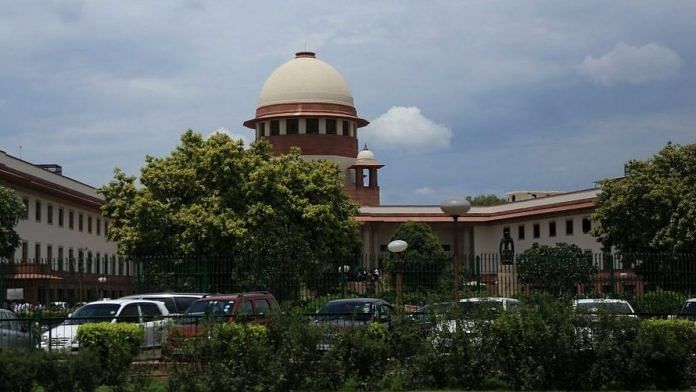New Delhi: A Chennai-based advocate has moved the Supreme Court against a “double-life” ban imposed on him by the Bar Council of India (BCI), claiming that he is being harassed for trying to expose judicial corruption.
In his plea, Manikandan Vathan Chettiar said he was the first lawyer to face such punishment in Independent India. The only two lawyers to face bans before, he added, were freedom fighters Shyamaji Krishna Varma (1909) and Mahatma Gandhi (1922), who were punished thus by the British.
Chettiar’s plea, which was filed in December 2018, will be heard Friday by a bench comprising Justice D.Y. Chandrachud and Justice Hemant Gupta. Senior advocate Colin Gonsalves will represent Chettiar.
The ‘trigger’
In his plea, Chettiar claims that he filed numerous cases in the Madras High Court to expose alleged corruption in the judiciary.
According to him, he had been successful in banning fake courts conducting judicial proceedings, and had filed a PIL against fake FIRs being filed in court, besides exposing false road-accident claims clogging the lower judiciary.
However, the immediate trigger, he added, was his investigation into alleged judicial misconduct in the trial for the high-profile Sankararaman murder case, which involved an employee’s murder on the premises of a Tamil Nadu temple in 2004.
The late Kanchi Sankaracharya Jayendra Saraswathi was among the over 20 people accused in the case, but all were acquitted by a Puducherry trial court in 2013.
The advocate moved the Madras High Court and claims he submitted an audio tape as evidence to prove that the trial court judge accepted illegal gratification.
In 2015, when lawyer P.N. Prakash was elevated as a permanent judge of the Madras High Court, he became the presiding judge for the bribery case against the sessions court judicial officer.
Chettiar subsequently pointed out that Prakash had been the lead defence counsel in the Sankararaman case, after which the high court judge directed the state bar council to initiate disciplinary proceedings against Chettiar.
Also read: No cooling-off period for retired judges, Modi govt tells Parliament
BCI’s bans
In September 2015, the Tamil Nadu Bar Council suspended Chettiar. The BCI, the apex lawyers’ body, subsequently imposed two life bans on him in February 2018.
In its order, the BCI noted that Chettiar “does not have any respect whatever [sic] to the judges or judiciary…”
“In his capacity as a petitioner, as well as advocate in other cases, he virtually running a crusade against the judiciary,” the BCI added in its order.
“On analysis of the entire record and the successive events, we find that what started as a tendency in the first respondent to attack and denigrate the institution of the judiciary has devolved into propensity and has now stabilized in the form of determination.”
However, Chettiar has termed the BCI order “bogus”, saying he was not even given a chance to defend himself.
Also read: From Ayodhya title dispute to CBI row, when Supreme Court judges refused to hear a case



